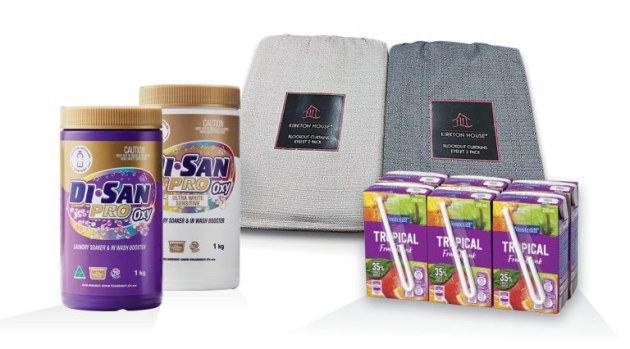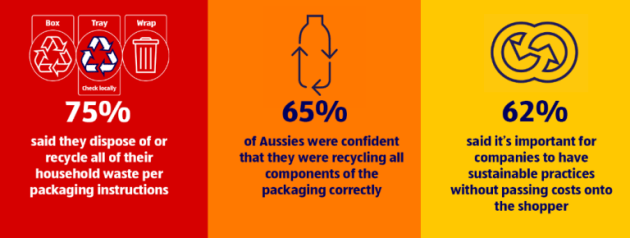Aldi Australia has released the 2021 edition of its annual Plastics and Packaging Progress Report, this year with supporting research, which reveals well-intended Australians face more questions than answers when it comes to recycling.
The new research commissioned confirms a reduction in plastics waste is top of mind for shoppers, with 73 per cent agreeing supermarkets should work with suppliers to reduce the packaging on products.
This hunger for greater recycling extends into their own homes, with 64 per cent saying it is important that packaging leftover is able to be recycled.
Unfortunately, it was found that Australians recycling prowess is hampered by confusion over how it all works.
More than two in five (43%) Australians were found to not always recycle packaging from their household waste, with 42 per cent pointing to confusion over what is suitable for recycling a major reason.
Four in five shoppers said they would correctly sort and dispose of their household waste if given clearer instructions.
To help curb this confusion, as part of Aldi’s plastics and packaging commitments, the Australasian Recycling Label (ARL) logo and recycling instructions will be featured on 100 per cent of Aldi’s exclusive brand products by the end of 2022.
As of December 2021, the supermarket giant is already displaying the information on over 75 per cent of the range.

Brooke Donnelly, the Australian Packaging Covenant Organisation’s (APCO) outgoing-CEO, welcomed the plan to help put more knowledge in the hands of customers to encourage accurate recycling.
“The ARL increases recycling recovery rates and contributes to cleaner recycling streams, and it is commendable to see Aldi support its customers to play their part in correctly recycling and disposing of their packaging,” Donnelly said.
“Achieving the display of the ARL on 75.6 per cent of own-brand products as of the end of 2021 is a fantastic achievement, and it’s great to see Aldi on its way to achieving its goal to have it included on its entire range by the end of 2022.”

Helping customers recycle in their home with best-in-class packaging information is coupled with the supermarket’s own plastic reduction achievements.
At the end of 2021, Aldi achieved a plastic packaging reduction of 11 per cent, as compared to 2019, the equivalent to preventing more than 4000 tonnes of plastic from entering the Australian environment.
“We are well on-track to achieving our targets. Since announcing our commitments in 2019, we have achieved a massive 11 per cent reduction in plastics, and this jumps to a huge 18 per cent when it comes to packaging on our fresh produce range,” explained Daniel Baker, director corporate responsibility, Aldi Australia.
“While we have a responsibility to reduce plastics, we also feel we have a responsibility to help our customers correctly dispose or recycle the packaging that they take home with them after their shop.
“The industry-approved ARL instructions show how to correctly dispose of product packaging, and will hopefully give our customers peace of mind that they are doing the right thing by reducing waste to landfill, and contributing to a more sustainable future.”
In a bid to give customers more options for recycling, Aldi has also partnered with REDcycle to offer a soft plastics recycling program across all of its stores nationally by the end of 2022.
The program offers a closed loop solution that will enable its shoppers to recycle more components of their household waste by returning soft plastics to its stores, to then be re-processed into new packaging materials.
Despite the confusion around household recycling, the research has found that 57 per cent of Australians always recycle packaging from household waste, with 62 per cent noting that companies should have sustainable business practices without passing on costs to consumers.

“We remain committed to transparently reporting not only our accomplishments in achieving plastics reductions across our range, but also our challenges,” said Baker.
“We have big goals that require close relationships with our supplier partners to achieve them. It is exciting to see product innovation that reflects our need to move away from plastics.
“One thing our customers can be confident in is that we are committed to our plastics reduction targets, but it certainly won’t come at a hit to their back pockets.
“We understand completely the importance of affordability, and we are committed to being the best priced retailer in the market. We also believe that our affordability doesn’t have to cost the earth.”






